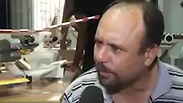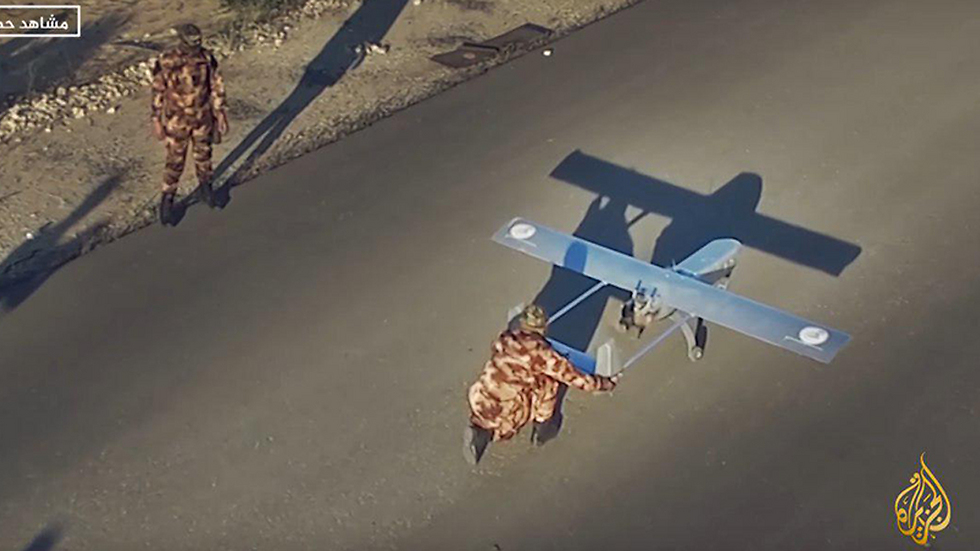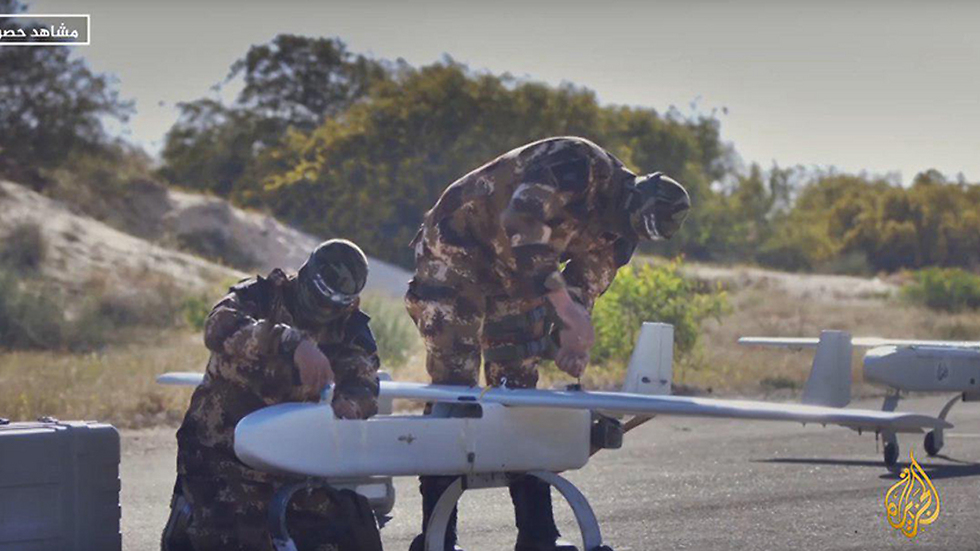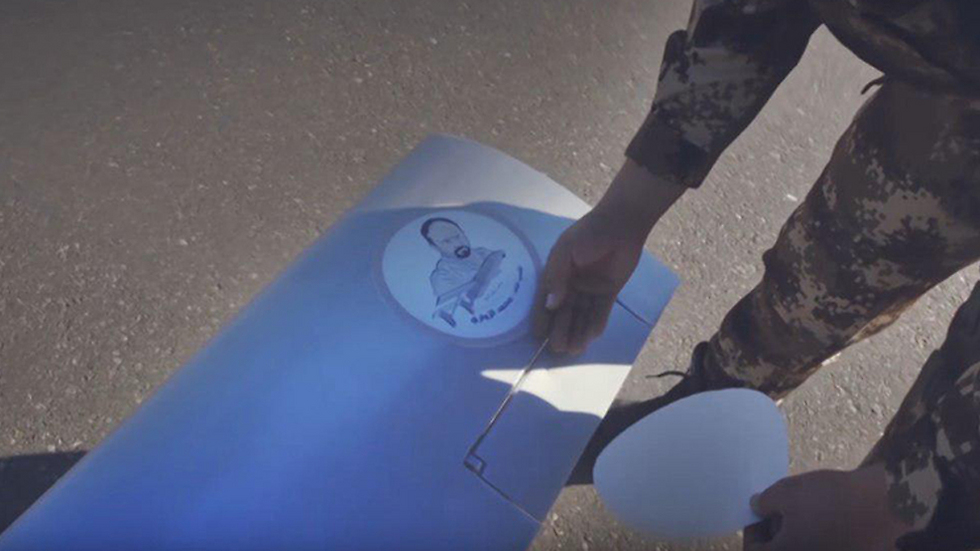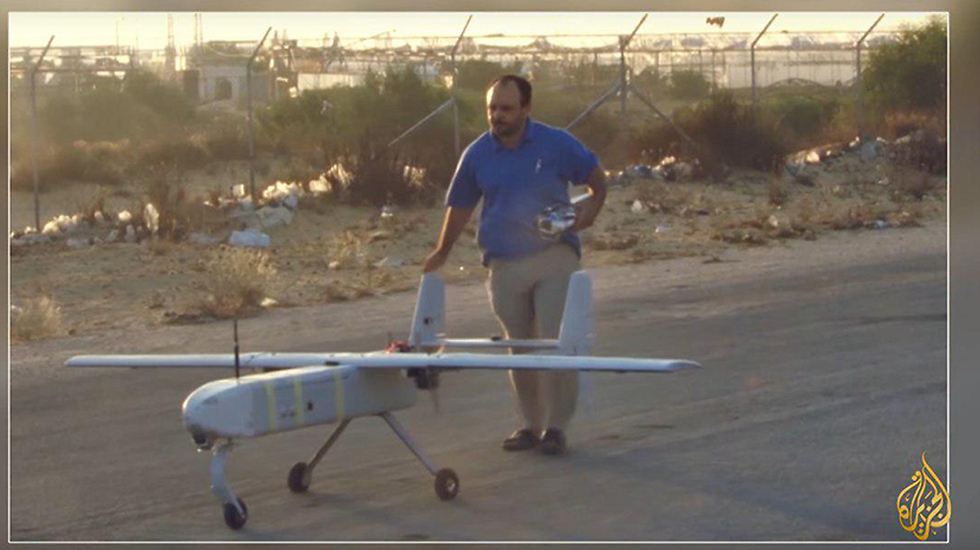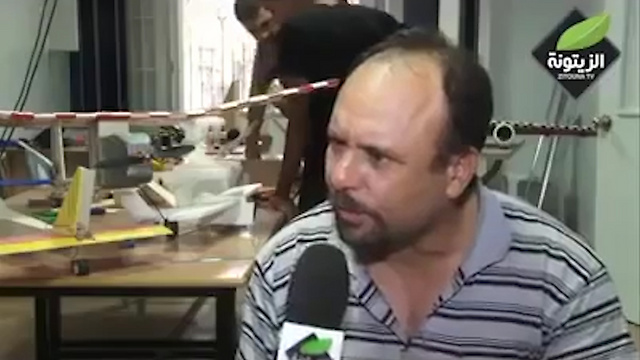The documentary featured interviews with officials from the drone unit of the Izz al-Din al-Qassam Brigades, where al-Zawahri had been a key member since his recruitment to the organization in 2006.
"The UAV project was only in the early stages when he joined the military wing. His participation led to a breakthough," said a masked man identified only as "Abu Ahmed."
Hamas' drone project was named after al-Zawahri's kunya, or operational name, "Murad."
Al-Zawahri's wife, Majida Saleh, who was interviewed in the documentary, testified that only a year and a half after her marriage did she know what his real name was, yet according to her, he would always known as Murad for her.
The same Abu Ahmed also revealed that an engineer and an Iraqi officer from the regime of former Iraqi president Saddam Hussein gave the military wing of Hamas the first UAV model built under the supervision of al-Zawahri. Furthermore, Abu Ahmed also revealed that al-Zawahri and his team visited Iran and met with a team of experts to promote the UAV project.
The Iranians trained them for several months and by the start of Operation Cast Lead in 2008, al-Zawahri and his men managed to produce 30 unmanned aerial vehicles.
"The Iranians were surprised by the level of knowledge of the crew that was able to manufacture the aircraft manually," one of the unit's men recalled.
According to the documentary, in addition to al-Zawahri's team and their activities outside of the Gaza Strip, there was also another separate team working on UAVs in the Gaza Strip. In light of al-Zawahri's successes in Tunisia, he was apparently sent to the Gaza Strip several times to assist efforts.
The documentary showed several images and videos of al-Zawahri operating the UAVs while in the Gaza Strip.
The editor of the documentary, Tamer al-Mishal, a former Al Jazeera correspondent in Gaza known to be close to Hamas' military wing, confirmed that al-Zawahri had also been tasked with producing unmanned nautical vehicles for Hamas.
Johann from Austria
According to the report, two foreign nationals carried out the assassination.
Currently, three Tunisian citizens have been arrested in connection to the killing, identified as Salam a-Saadawi, Sami al-Malin and journalist Maha Hamouda, who was recruited to produce a film about aviation that al-Zawahri was supposed to collaborate on.
The report claims that the three were recruited by a man named "Johann" from Austria, who set up two straw companies through which to recruit additional people.
An additional person of interest in the assassination is a man known as Chris Smith, from Budapest, who supposedly made contact with an aviation club where al-Zawahri served as an instructor. Apparently, Smith was interested in collaborating on UAVs and even met al-Zawahri.
The documentary alleges that the Hamouda's task was to bring photographs of al-Zawahri, while the two other Tunisians were responsible for renting two cars, an apartment overlooking al-Zawahri's home and several local SIM cards.
According to the report, the assassination was supposed to be carried out on December 14th and the Tunisians were supposed to leave for Brazil the day before. The investigation further revealed that Hamouda and a-Saadawi identified one of the killers who was caught on camera and later identified as Salim Buzayd, a Moroccan who met with them in Austria as part of their fictitious recruitment.
The documentary went on to speculate that the port of Sfax, which is five kilometers from al-Zawahri's home, was used to both reach the scene of the assassination and escape after the task had been accomplished.
The documentary ended with an interview of another member of Hamas' drone unit, identified as "Abu Mujaheed," who claimed that the moment the organization became aware of the assassination, it was decided to place responsibility on Israel.
Mujaheed added that since the assassination, there many scientists and experts that are flocking to Hamas' military wing to follow in the path of al-Zawahri.
(Translated and edited by Fred Goldberg)
